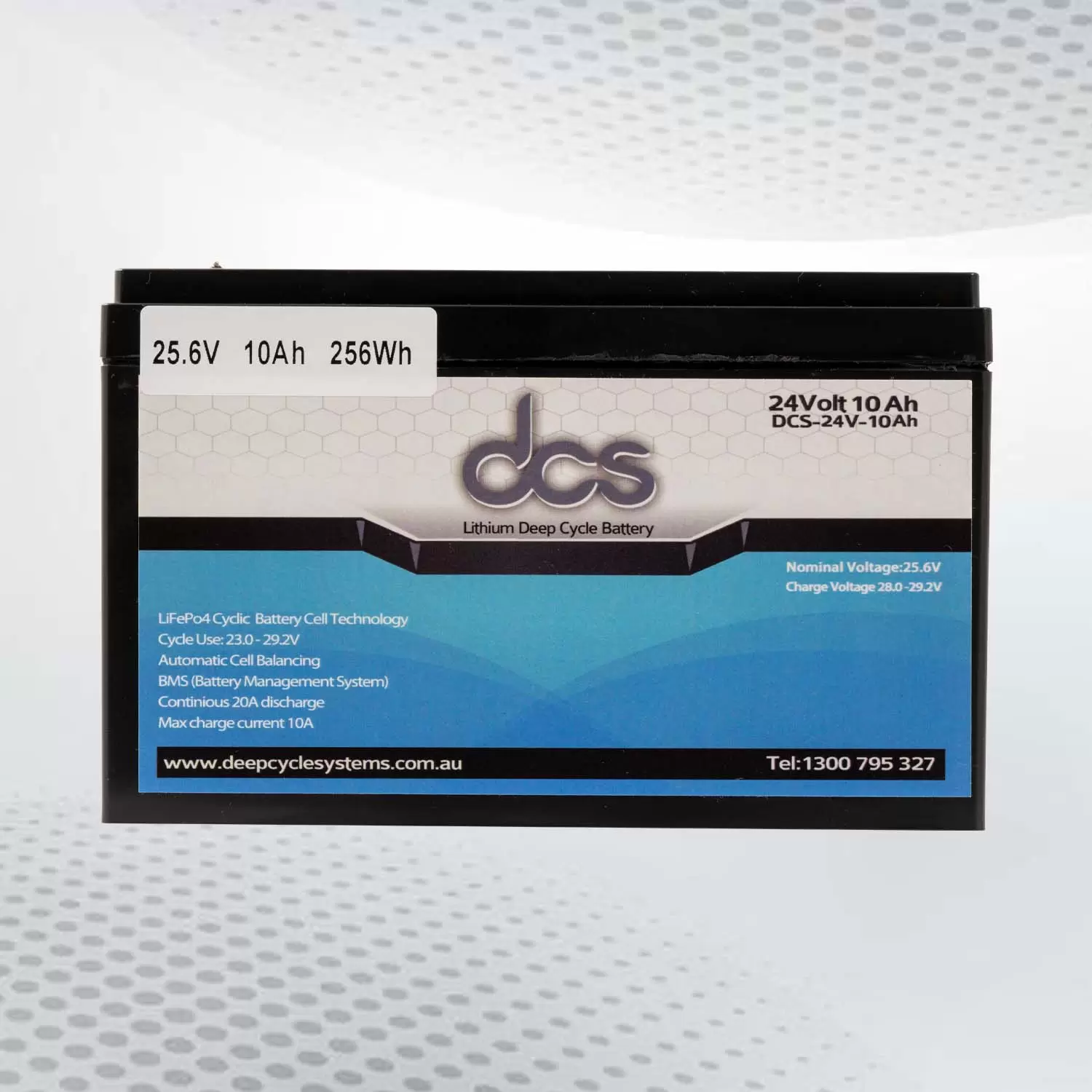Welcome to the electrifying world of energy innovation! As we stand at the crossroads of technology and sustainability, one power source is charging ahead with unprecedented potential: 24V lithium-ion batteries. With applications ranging from electric vehicles to renewable energy systems, these sleek powerhouses are redefining what it means to be efficient and reliable. Join us as we delve into the future of power—unpacking how 24V lithium ion batteries can energize your next project and propel you into a new era of performance and productivity. Whether you’re an engineer, DIY enthusiast, or just curious about cutting-edge tech, this exploration promises insights that could spark your imagination—and perhaps even ignite your next big idea!
Introduction to the Advancements in Battery Technology
The world of battery technology is rapidly evolving, pushing boundaries and creating endless possibilities. As we seek cleaner, more efficient energy solutions, advancements in lithium-ion batteries have emerged as a game-changer. Among these innovations, 24V lithium-ion batteries stand out for their versatility and power.
Imagine harnessing energy that lasts longer and performs better—whether powering an electric vehicle or designing smart home systems. These batteries are not just an upgrade; they’re a revolution in how we think about energy storage. If you’re embarking on a new project or looking to enhance existing ones, understanding the potential of 24V lithium-ion batteries could be your next step. Let’s dive into what makes them so special and explore the bright future they hold for various industries and applications.
Understanding the Basics of Lithium-Ion Batteries
Lithium-ion batteries have revolutionized energy storage. They power everything from smartphones to electric vehicles.
Lithium ions are at the core of these batteries, which move between positive and negative electrodes during charging and discharging. This movement creates a flow of electricity that we can harness for various applications.
One key feature is their high energy density. This means they store more power in a smaller space than traditional battery types. This makes them ideal for portable devices where weight matters.
Another advantage is their low self-discharge rate. Unlike older technologies, lithium-ion batteries hold onto their charge longer when not in use.
They also come with built-in safety features like thermal management systems, ensuring efficient performance while minimizing risks associated with overheating or short-circuiting. Understanding these fundamentals sets the stage for exploring specific types like 24V lithium-ion batteries.
What Makes 24V Lithium-Ion Batteries Different?
24V lithium-ion batteries stand out due to their unique voltage configuration. This specific voltage level makes them ideal for applications that require a balance between power and efficiency.
They are designed with advanced chemistry, allowing higher energy density than traditional battery types. This means they can store more energy in a smaller package, making them lighter and easier to handle. Another distinctive feature is the built-in Battery Management System (BMS). This technology monitors performance and ensures safety by preventing overcharging or deep discharging.
24V lithium-ion batteries also boast faster charging times. They recharge quicker than lead-acid counterparts, saving valuable time during critical projects. Their versatility allows them to be used across various industries—from renewable energy systems to robotics—making them an attractive choice for modern applications.
Benefits of Using 24v Li Ion battery for Your Projects
The benefits of using 24v li ion battery for your projects are numerous, making them a popular choice among professionals and DIY enthusiasts alike. These advanced batteries offer many advantages over traditional lead-acid batteries, making them the future of power in various industries.
1. High Energy Density:
One of the main benefits of using 24v lithium-ion batteries is their high energy density. This means that they can store more energy in a smaller and lighter package than other types of batteries. This makes them ideal for portable devices or equipment where weight and size are critical factors.
2. Longer Lifespan:
Li-ion batteries have a longer lifespan than other battery technologies, such as lead-acid or nickel-cadmium (NiCd) batteries. They can withstand hundreds of charge-discharge cycles without significant capacity loss, making them more cost-effective in the long run.
3. Fast Charging:
With advancements in technology, 24v lithium batteries now have fast-charging capabilities, allowing you to recharge them quickly when needed. This is especially beneficial for professionals who cannot afford downtime waiting for their equipment to charge.
4. Low Self-Discharge Rate:
Li-ion batteries have a lower self-discharge rate than other rechargeable batteries, which means they retain their charge longer when not in use. This makes them suitable for applications that require infrequent use or standby power.
5. Environmentally Friendly:
Unlike lead-acid or NiCD batteries, lithium batteries do not contain any toxic materials that could harm the environment. They also produce fewer emissions during production and disposal, making them an eco-friendly option for powering your projects.
Using 24v li-ion batteries for your projects offers numerous benefits that make them the future of power. With technological advancements and increasing demand for portable and eco-friendly energy solutions, these powerful batteries are here to stay. So, whether you are a professional or a hobbyist, consider switching to lithium batteries for your next project and experience the difference it can make.
Applications and Industries That Can Benefit from 24V Lithium-Ion Batteries
24V lithium-ion batteries are transforming various sectors, enhancing efficiency and performance across the board.
These batteries play a crucial role in solar power storage in renewable energy. Their compact design and high energy density make them ideal for storing excess energy generated during peak sunlight.
Electric vehicles (EVs) also benefit significantly from 24V systems. They offer lightweight solutions that help improve range without compromising on power.
Additionally, industries like telecommunications utilize these batteries to ensure uninterrupted service during outages. The reliability they provide is invaluable in maintaining connectivity.
The medical sector finds advantages too; portable medical devices rely on the longevity and stability of lithium-ion technology for critical applications such as patient monitoring. From robotics to material handling equipment, the versatility of 24V lithium-ion batteries opens doors to innovative solutions across numerous fields.
Comparison with Other Types of Batteries (Lead-Acid, Nickel-Cadmium)
When comparing 24V lithium-ion batteries to lead-acid and nickel-cadmium options, the differences become clear.
Lead-acid batteries are bulky and heavy. They provide good power but have a shorter lifespan. Generally, they require more frequent maintenance. Their efficiency drops significantly in colder temperatures.
Nickel-cadmium (NiCd) batteries offer decent performance but come with environmental concerns due to toxic cadmium content. They also suffer from memory effects, which can hinder their effective charging capacity over time.
Lithium-ion technology shines here. It is lighter and has a higher energy density than both alternatives. You get longer run times without frequent replacements.
Moreover, lithium-ion batteries charge faster and operate efficiently across various temperatures. This makes them a smart choice for modern applications where reliability is key, such as electric vehicles or renewable energy systems.
The advantages of lithium-ion continue to gain attention as industries evolve and seek sustainable solutions.
Tips for Choosing the Right 24 Volt Lithium Ion for Your Project
When it comes to powering your project, choosing the right battery is crucial. With the advancements in technology, 24 volt lithium ion batteries have become a popular and preferred option for many projects. These batteries offer numerous advantages, such as high energy density, longer lifespan, and fast charging capabilities. However, with so many options available on the market, it can be overwhelming to select the right one for your specific project needs. In this section, we will discuss some important tips that can help you choose the right 24-volt lithium-ion battery for your next project.
Consider Your Project Requirements:
The first step in selecting the right battery is to consider your project’s power requirements. You need to determine how much power your project will consume and for how long you need it to run. This will give you an idea of the capacity or ‘ampere-hour’ (Ah) rating that you require from a battery.
Look at Energy Density:
Energy density refers to how much energy a battery can store per unit volume or weight. Higher energy density means more energy storage capacity in a smaller size or weight of a battery. It is an essential factor to consider when choosing a 24-volt lithium-ion battery as it directly affects its portability.
Check Battery Life:
Another crucial aspect to consider is the lifespan of the battery. Lithium-ion batteries are known for their long life compared to other types of rechargeable batteries; however, different brands may have varying lifespans depending on their quality and usage patterns.
Evaluate Charging Time:
One of the significant advantages of 24-volt lithium-ion batteries is their fast charging capability compared to other types of batteries like lead-acid or nickel-cadmium batteries. However, not all lithium-ion batteries are created equal when it comes to charging times; therefore, make sure to check this before making a purchase decision.
Consider Temperature Range:
The temperature range in which a battery can operate efficiently is also a crucial factor to consider, especially if you are working on a project that will be exposed to extreme temperatures. Lithium-ion batteries have a wide operating temperature range, but it’s still essential to check the manufacturer’s specifications before making a purchase.
Choosing the right 24-volt lithium-ion battery for your project requires careful consideration of several factors, such as capacity requirements, energy density, lifespan, charging time, temperature range, and safety features, as well as researching different brands.
Maintenance and Safety Considerations for 24V Lithium-Ion Batteries
Maintaining 24V lithium-ion batteries is crucial for optimal performance and safety. Regularly inspect the battery for any signs of damage, such as swelling or leaks. A compromised battery can lead to serious hazards.
Temperature plays a significant role in battery health. Keep your batteries within recommended temperature ranges to prevent overheating or freezing, which can reduce lifespan and efficiency. Charging practices also matter. Use only compatible chargers designed for lithium-ion technology. Avoid overcharging, as this can cause thermal runaway—a dangerous condition that could lead to fires.
Always store batteries in a cool, dry place away from flammable materials. When not in use, consider discharging them partially rather than storing them fully charged. Lastly, familiarize yourself with local regulations regarding the disposal and recycling of lithium-ion batteries to ensure safe and environmentally friendly practices.
The Future of 24V Lithium-Ion Batteries: Potential Innovations and Developments
The future of 24V lithium-ion batteries is bright, with continuous advancements on the horizon. Researchers are exploring new materials that could enhance energy density and reduce charging times significantly.
Innovative manufacturing techniques promise to lower production costs while improving battery longevity. This evolution will make these batteries more accessible across various industries. Smart technology integration is also on the rise. Batteries equipped with monitoring systems can provide real-time data on performance and health, ensuring optimal usage and maintenance.
Moreover, recycling methods are being refined to recover valuable materials from spent batteries. This not only helps with sustainability but also addresses supply chain concerns about raw materials. As electric vehicles and renewable energy solutions gain traction, the demand for efficient power storage will soar. The adaptability of 24V lithium-ion technologies may lead to breakthroughs in areas we haven’t even considered yet.
Conclusion
The evolution of battery technology continues to shape our world, with 24V lithium ion batteries leading the charge in innovative energy solutions. Their lightweight design and high efficiency offer significant advantages over traditional options. Industries ranging from renewable energy to consumer electronics are beginning to harness their capabilities. As we look toward the future, advancements in this field promise even greater developments. This includes improvements in lifespan, charging time, and overall performance. The prospect of higher capacity batteries at lower costs is enticing for anyone considering upgrades for their projects.
FAQs
1. What is a 24v lithium ion battery?
A 24v lithium ion battery is a rechargeable energy storage device that uses lithium ions as the main component of its electrochemical system. It has a nominal voltage of 24 volts, which means it can deliver consistent power output until it reaches its minimum voltage level.
2. How does a 24v lithium-ion battery compare to other types of batteries?
Compared to traditional lead-acid or nickel-cadmium batteries, 24v lithium-ion batteries have a higher energy density, longer lifespan, and faster charging capabilities. They also have no memory effect and require less maintenance.
3. What are the applications of a 24v lithium-ion battery?
A 24v lithium-ion battery is commonly used in various electronic devices such as laptops, smartphones, and power tools. It is also suitable for electric vehicles, solar energy systems, and backup power supplies.



